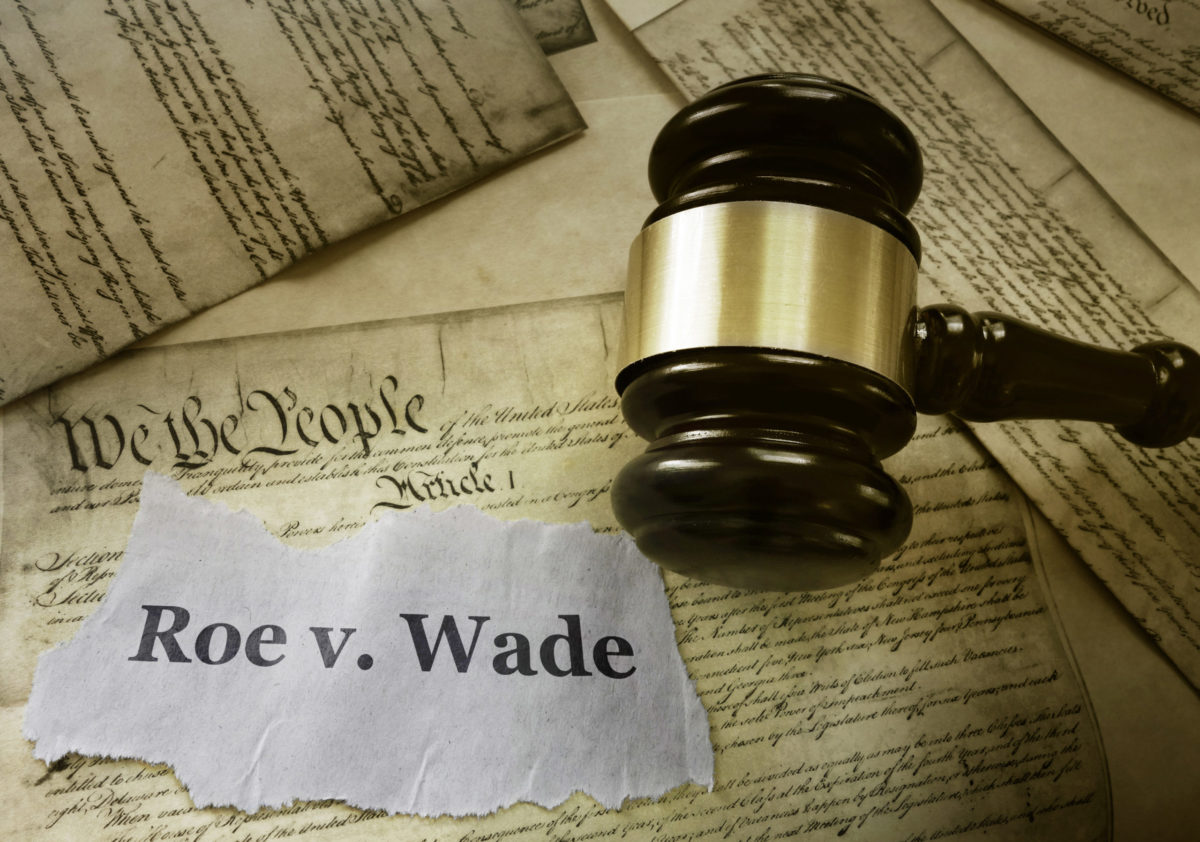Roe v. Wade has been the law of the land for nearly half a century. Despite decades of majority support among Americans for the legal right to abortion, recent changes at the U.S. Supreme Court have potentially put Roe in question. And, a new case the court has agreed to hear may be the first realistic possibility for overturning the landmark ruling. Why now?
We’ve gone back to 1973 — when the Supreme Court determined that the Constitution protected a woman’s right to an abortion under the 14th Amendment — to see how public opinion has, or hasn’t, changed since that historic ruling. What we find is a majority of Americans have consistently supported a woman’s right to abortion in some circumstances.
In that year, Roe v. Wade moved abortion into the national political spotlight. When the Harris Poll asked Americans where they stood on the statement, “Many mothers have unwanted babies, and it is better to have abortions that are safe and legal,” 57% agreed, and 36% disagreed.
When other polls over time have asked a similarly dichotomous question on the abortion issue, support for abortion rights reflects these results.
In a 1980 CBS News/New York Times survey, the question posed to Americans was if a woman should be allowed to have an abortion if a doctor agreed to it. 62% said yes, 19% said no, and another 19% said “it depends” or did not have an opinion.
A decade later, a 1990 Time Magazine/CNN Poll took a different approach, asking Americans whether they favored or opposed a constitutional amendment banning abortion. 73% were against such an amendment, and 21% favored it.
At the turn of the century, in 2000, a NBC News/Wall Street Journal Poll asked the straightforward question, should abortion be illegal, or not. 53% of Americans said they supported legal abortion, 35% said they did not.
In 2010, a CBS News/New York Times Poll asked if Americans thought Roe v. Wade was a “good thing” or a “bad thing.” 58% said it was a good thing, and 34% said bad thing.
When asked in the most recent Knights of Columbus/Marist Poll (January 2021) if Americans considered themselves to be pro-choice or pro-life, 53% said they were pro-choice, and 43% said pro-life.
Dichotomous questions, though, can push attitudes to the extremes. When asked on a six-point scale which allows respondents to weigh in on when abortion should be allowed, there is more nuance, with many Americans saying abortion should be allowed only under certain conditions.
According to that Knights of Columbus/Marist Poll, only 15% of Americans supported abortion at any point in a woman’s pregnancy, and an additional 10% reported abortion should be permitted within the first six months of pregnancy. At the other end of the spectrum, 12% reported abortion should never be allowed.
Nearly three in four Americans, though, reported significant restrictions should be placed on abortion: within the first three months of pregnancy (25%); only in cases of rape, incest, or to save the life of the mother (28%); or only to save the life of the mother (11%).
As Barbara Carvalho, Director of The Marist Poll, points out, the debate over abortion is complex:
“Especially in this time, where it’s so incredibly polarized, we have to make sure that we are also looking at the underlying beliefs that people have on the issue, not just at the poles…. If you look at what the consensus is, there is a very strong consensus about maintaining Roe v. Wade but also about having certain restrictions. ‘Abortion on demand’ is used as a polarizing phrase, and that is when people begin dividing up.”
How important an issue is abortion to Americans? Our September 2020 NPR/PBS NewsHour/Marist Poll sought to better understand the issues priorities of Americans. We provided a list of 12 issues, including abortion, and asked respondents which topic was most important to them. The results revealed that only 5% of Americans said abortion was their top issue. But, that’s not the whole story.
Which segments of Americans are in that 5% explains a lot about why Roe may be in jeopardy now. In that poll, white evangelical Christians and Republicans both said abortion was the 2nd most important issue to them after the economy.
There’s a lot of nuance that lies behind the abortion debate in America, but, when it comes to the question of priorities, abortion opponents find this topic more critical than do those who favor Roe.
Every Republican presidential nominee since Ronald Reagan has run on an explicitly anti-abortion, anti-Roe platform. During this same period, the Supreme Court has had 5 or fewer conservative justices; some of whom declined to vote to effectively overturn Roe v. Wade when given the chance.
Now, with 6 of 9 justices thought to be against most legal abortion, the idea of Roe being overturned is a real possibility. The question for people on both sides of the abortion debate then is, does the threat of Supreme Court action make it a more important issue to the large group of Americans who have never thought it a priority?
This post was written by Marist Poll “College 2 Career” intern Sarah DeBellis.

